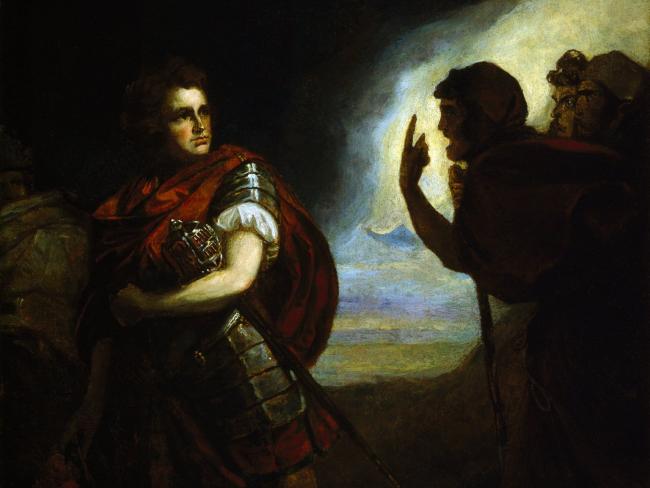11 October 2024

John Henderson as Macbeth (c. 1787) from a painting by George Romney. Image Folger Shakespeare Library (CC BY-SA 4.0) via Wikimedia Commons.
We received this letter from a reader in Scotland reflecting on the theme of clothing in Macbeth, which actors call “the Scottish play” lest saying his name brings disaster. Read on.
“The recent disclosures concerning the ‘gifting’ of tens of thousands of pounds worth of clothing to Keir Starmer and others in the Labour leadership has set running a metaphor comparing political power and garments.
“The symbolism of power dressing was a subject examined by William Shakespeare in his play The Tragedy of Macbeth written in 1606. The idea of clothing is first mentioned in the play when the character Macbeth asks: ‘why do you dress me in borrowed robes’ when the king has given him the title of a defeated enemy, who is still alive.
“New honours”
“Shortly thereafter his friend and colleague Banquo likens Macbeth’s new position to new clothing: ‘New honours come upon him / like our strange garments cleave not to their mould.’ Meaning Macbeth is mentally trying on his new honours but the titles don’t quite fit.
“Then later in the first act, Macbeth pleading to his wife that he is unsure about their plan to murder the king says the influence given him ‘[should] be worn now in their newest gloss / Not cast aside so soon’.
Declining power
“Finally towards the end of the play another character discusses Macbeth’s declining power as ‘Now does he feel his title / Hang loose about him, like a giants robe / Upon a dwarfish thief’.
“May the images conjured by Shakespeare’s words and the simile of Starmer and his set wearing their bought costumes be this governments fitting epitaph. They are bought imposters who have no part in the British organised labour movement. Suit You Sir.”
